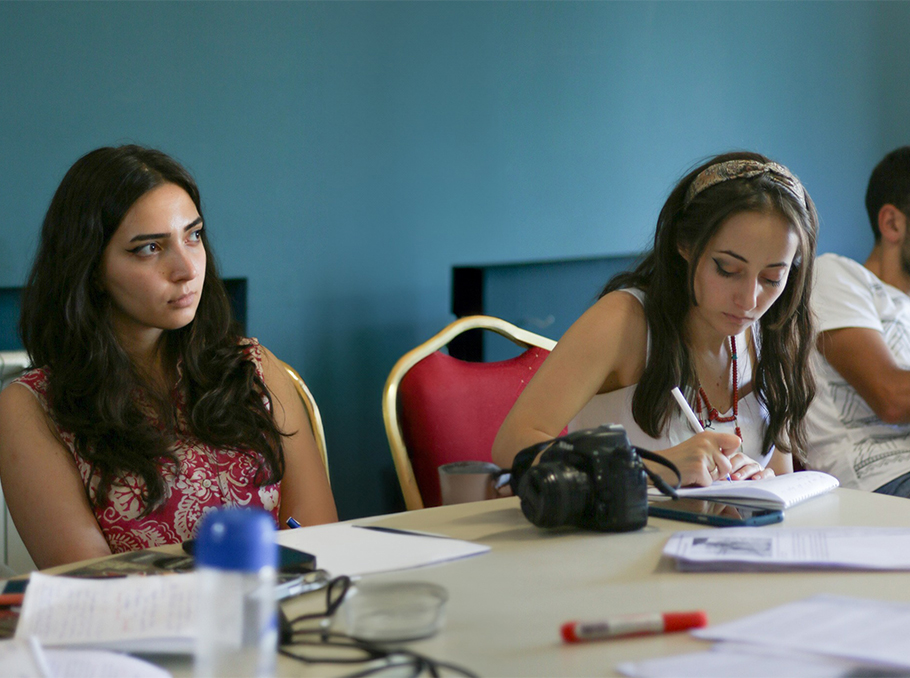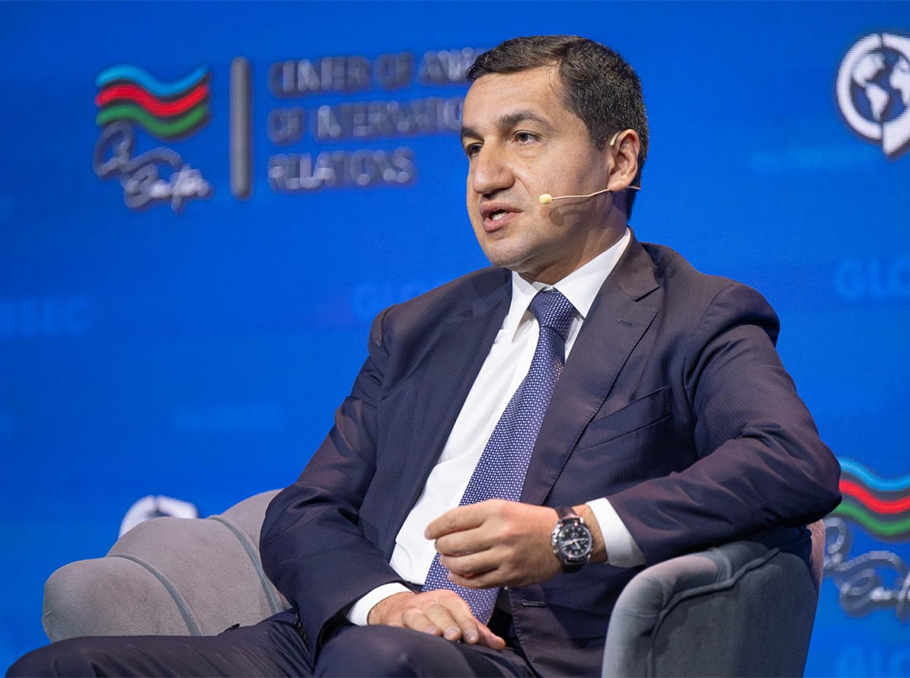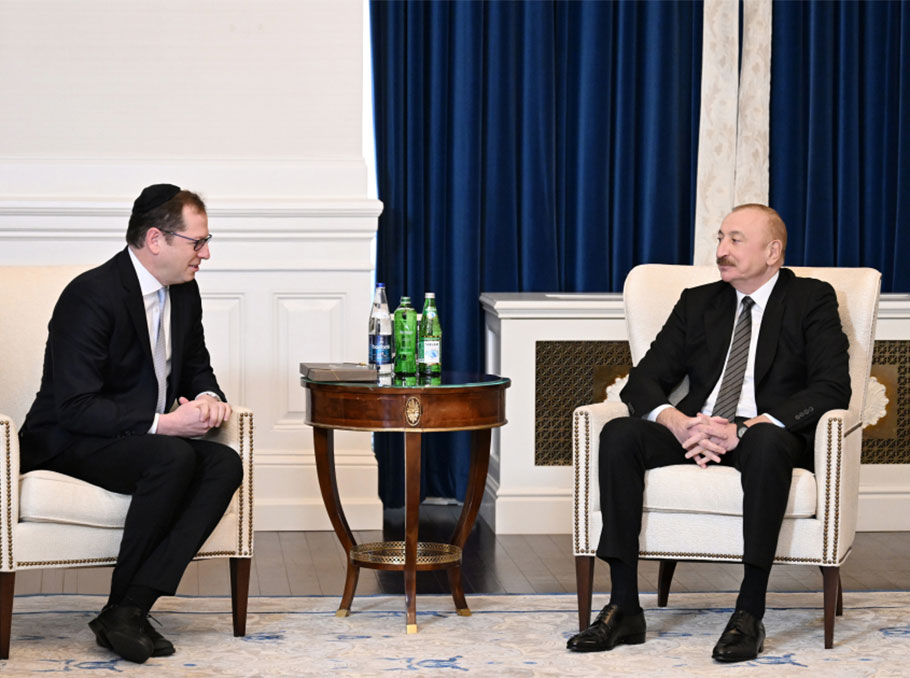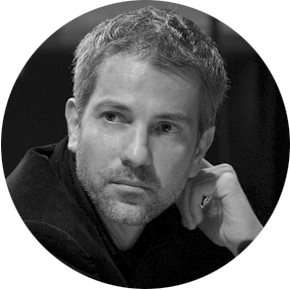In August of this year, Mediamax journalist Gaiane Yenokian participated in the “Storytelling in Journalism: from Hard data to Harder Narratives" training organized by the Armenian General Benevolent Union. The aim of the training is to equip Armenian journalists with the necessary tools to work with the international media on the topics of Armenia and Artsakh.
The participants of this year's course were just learning to apply the acquired theoretical knowledge in practice, when they were already forced to become proficient in emergency conditions due to the disaster of September 19. Nevertheless, the community of journalists formed due to the previous years’ trainings succeeded to publish a number of articles in the world's leading media, showing that what was happening was the ethnic cleansing of Artsakh.
Before the catastrophic events, Mediamax has talked with the founders of the initiative about its idea and goals.
Libya, Iraq, Western Sahara, and then Artsakh
Spanish-Basque freelance journalist Karlos Zurutuza, who has been in journalism for 20 years, knows well the difficulties that beginners usually face. When he was just starting out, there were no social networks and widespread access to the Internet, so contacting editors and pitching stories was a real challenge. Although the reality today is quite different, building connections with international editors still requires certain skills.
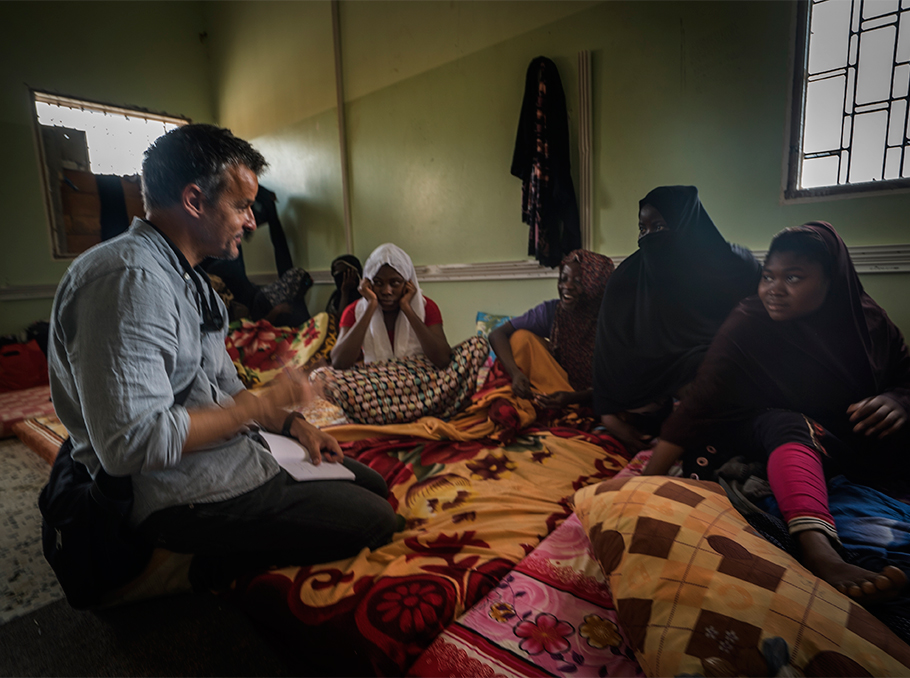 Karlos Zurutuza at migrants detention center in Libya
Karlos Zurutuza at migrants detention center in LibyaPhoto: Ricardo García Vilanova
“It took me years until I realized how to get started with the proper pitch. Most of this knowledge is just basic, but you need someone to tell you these things: how to pitch, how to structure a story. That's one of the reasons why we started to run workshops,” recalls Karlos.
While working in Libya, Syria, Kurdistan and other conflict zones, local young people who knew English were assisting Karlos as fixers. He tried to encourage them to start publishing in the international media and tell the story of their countries themselves.

Photo: AGBU
“I was telling them, that they can do it much better. They do not need a translator, they know what's going on, they just need to learn how to pitch the story and structure it. I did manage to help a few people and one day we decided to systemize this,” says Karlos.
In 2016, Karlos, along with freelance photographer Andoni Lubaki and BBC journalist Jewan Abdi, founded the Ronak Press NGO, which aims to support local journalists in conflict zones.
They managed to conduct workshops in Libya, Western Sahara, Kurdistan, Iraq. Later, the 2020 Artsakh war brought them to Armenia.
Information vacuum
"I was surrounded by many international journalists who knew nothing about Karabakh, but still were pitching and selling stories. And mostly that stories had no background, no proper understanding of the situation," Karlos remembers the times of the 44-day war.

Photo: AGBU
On the other hand, he also met local journalists who, although had all the knowledge about the situation, did not have the skills to work with the international media.
"They were more activists than journalists. They had so many "red lines" in their minds that were preventing them from telling the story properly. It was a pity because it was them who had to tell this story,” says Karlos.
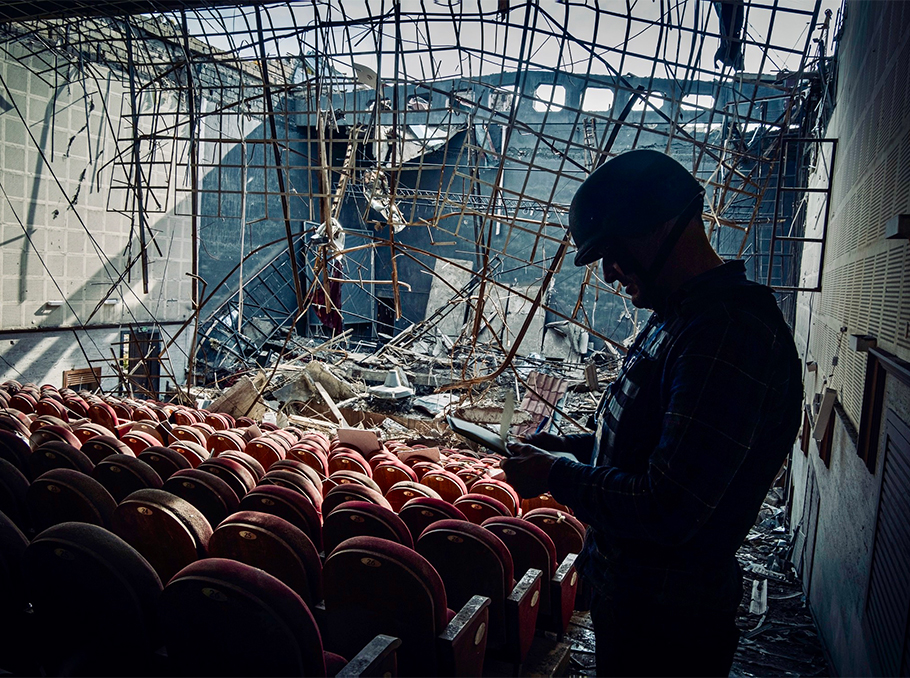 Karlos Zurutuza at Shushi's bombed House of Culture
Karlos Zurutuza at Shushi's bombed House of CulturePhoto: Ricardo García Vilanova
The Spanish journalist was surprised by the official information of the Armenian side as being on the spot, he could see a completely different image of the situation.
“Even after Shushi was taken over by the Azerbaijanis, we were being told that everything was under control. And that's why, among many other things, how everything ended up,” says Karlos.
It was in the first days of November when Karlos, together with all the other journalists, received a message that they should come to the media center urgently, all the journalists were being taken out. He twitted about this on "X" microblog, after which the Ministry of Internal Affairs of Armenia asked him to remove it.
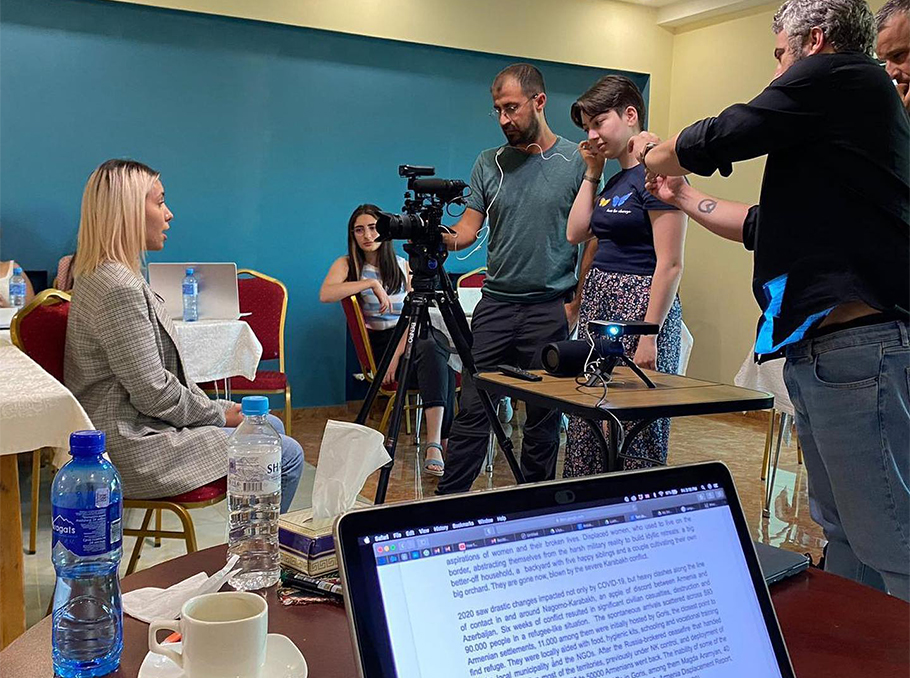
Photo: AGBU
“I was getting lots of hate replies from Armenians telling me that was all fake. Then I realized how little people knew about what was going on in Stepanakert.”
Returning to Yerevan, Karlos met with Diran Guiliguian. This acquaintance gave birth to the training courses for Armenian journalists.
From idea to implementation
Within the framework of the "Young Professionals" program by AGBU, focus groups consisting of Armenian youth are created in the various cities of the world with the aim of uniting Armenians in the Diaspora and strengthening their connection with Armenia and Artsakh.
In 2020, when Diran Guiliguian founded YP Madrid, months after Azerbaijan attacked Artsakh and Armenia. This forced Diran to change the intra-community direction of their programs towards to Armenia and Artsakh.
"During the war, we formed a delegation and came to Armenia, bringing with us Spanish deputies and journalists. During the wartime we could see that the international media was not covering Artsakh war and that made as to feel frustrated," Diran recalls.
On November 7, Diran learned that in the same hotel where they settled, there was also another Spanish journalist, whose name sounded familiar to him: Karlos.
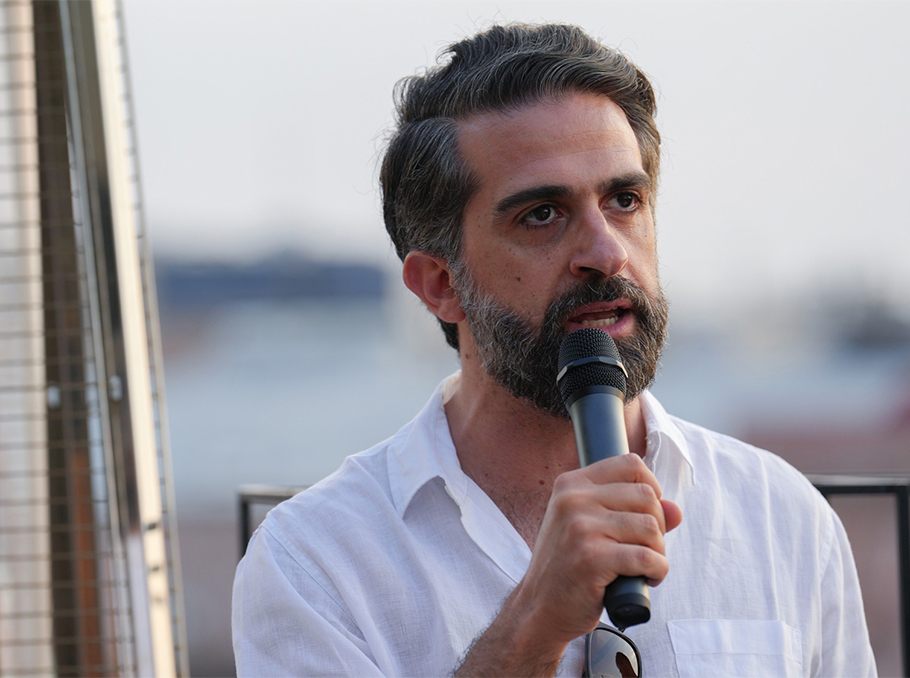 Diran Guiliguian
Diran GuiliguianPhoto: AGBU
"I went to talk to him and he told me something that I didn't want to believe. He said that the situation is very bad and we will lose the war in less than 48 hours," Diran remembers.
Months later, Karlos and Diran talked again about the reasons for the little coverage of Armenia and Artsakh in the international press. Karlos explained to Diran that international journalists do not know the nuances of the conflict, and Armenian journalists do not know how to work in war situations and write according to the standards of Western journalism, so they need to be trained.

Photo: AGBU
"I really liked the idea of starting courses. AGBU financed the project and we organized the first one-week storytelling course in Goris in the summer of 2021. Karlos, Andoni and Jewan arrived in Armenia with great willingness to work with Armenian journalists," says Diran.
3 generations of participants
For 3 years, with the efforts of AGBU and various other partners, the series of courses has become a reality. Several dozen journalists or beginners interested in the field have already participated in it, both from RA and Artsakh Republic.
"We conduct the courses in Goris because Yerevan seems to be a bubble - out from the reality: there is always music and fun, whereas in Goris the tension could be felt significantly. This is also another way to select the participants, because those who do not have a serious attitude towards the course will not want to come to Gori," says Diran.
Course participants are selected based on several key criteria, the most important of which is motivation to publish. You do not have to be a journalist, but need to master English language and have the willpower to pitch stories to international editors until you get a positive response. There are so many things happening around the world, and Armenia is just a small place on the map, so especially when knocking on the doors of the leading media, journalists should arm themselves with patience and diligence.
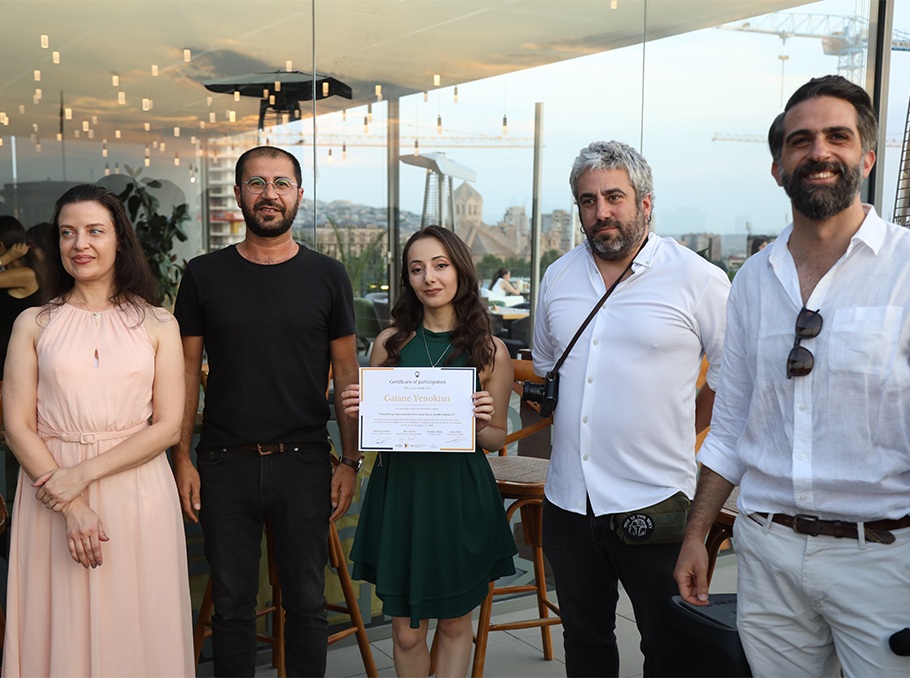
Photo: AGBU
The course covers several main areas: print media, video and photography.
"The trainers work with the participants with great dedication because they believe in the importance of what they do. Even after the end of the course, they continue to support in every way in order to put the gained skills into practice and help the participants to publish," says Diran.
In this year's course, the Associated Press editor Abby Sewell also joined the international journalists’ group. After some theoretical lessons she consistently edited the articles prepared by the participants, making them ready for publication.
More than 200 articles
Alumni of the course have already published more than 200 articles about Artsakh and Armenia. Many of these have been featured in leading media outlets including the Associated Press, BBC, Euronews, and more.
For example, Siranush Sargsyan, who is from Artsakh, actively worked with the BBC, Associated Press, The Guardian, LeFigaro and other media during the days of the blockade and after during war and forced deportation.

Photo: AGBU
Another graduate, Anush Ghavalyan, who is also from Artsakh, was published in the Spanish, Italian, and Greek press after the course.
"The first time was the most difficult, but it became possible with the support of Karlos. After that, I continued to publish, the topic was mainly Artsakh: conflict, human rights, etc.,” says Anush.
In her opinion, the community created as a result of the program is very important, thanks to which the participants are in continuous contact with the trainers, and also get to know the participants of other years.
“No one knows our problem better than we do. We should try to publish a lot in the international media or at least guide foreign journalists to report the information properly,” she says.
Mission accomplished
Karlos usually advises his students to forget about their desire to help people because it will definitely become obvious in the story and affect its credibility.
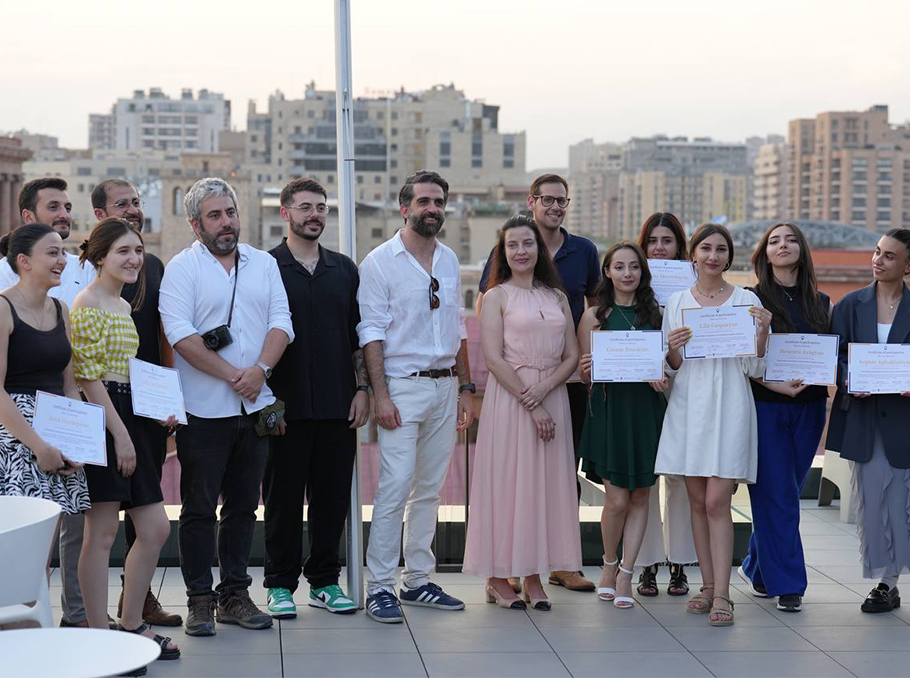
Photo: AGBU
"Credibility is the only thing a journalist has. If you lose your credibility, you won't publish your stories unless it is just propaganda media outlet. When you reach out the international media, the first thing they see is that you are Armenian, so they will be very cautious about you. And if there is the slightest smell of you trying to sort of manipulate the story that won't work,” says Karlos.
According to him, the most difficult stage begins after the course itself, when he tries to keep the participants "busy", help them get published until they do it on their own.
Both Karlos and Diran hope they will to continue the course in upcoming years. It also depends on the previous participants and their results.
After many years in journalism, publishing became common for Karlos, while each of his students' articles feels so rewarding for him.
“When they do not need me anymore for publishing and do it by themselves, that’s a mission accomplished,” says Karlos.
Gaiane Yenokian









